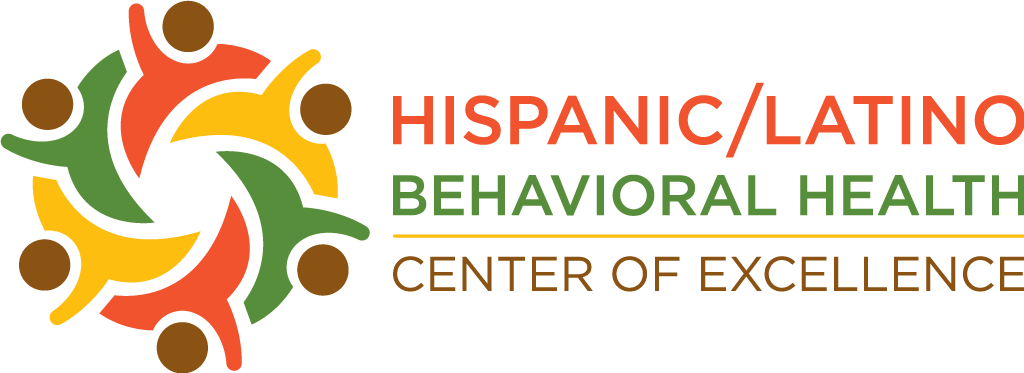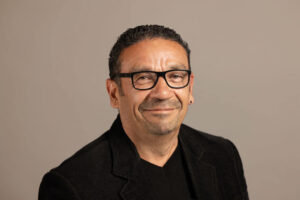
About 27% (2.4 million) of Hispanic/Latine young adults aged 18-25 meet the criteria for a substance use, alcohol use, or drug use disorder, this demographic also being the most likely among all Hispanic age groups of having used illicit drugs at some point. Involving parents and families as part of the conversations with youth around substance use is recognized as a crucial best practice for engagement and treatment within Hispanic and Latine populations.
This panel discussion seeks to equip healthcare providers with knowledge, cultural attuned outreach and engagement strategies, as well as successful practices to effectively communicate with Hispanic/Latine parents about substance use disorders (SUD), overdose risks, and harm reduction strategies in adolescents and young adults. The forum will foster strength-based approaches, trust building capacities and dialogues around lived experiences that help promote awareness, prevention, and support for Hispanic and Latine youth and families who may be affected by substance use issues.
Presenters/Panel:

Jorge R. Petit, MD, is a board-certified Adult, Community, and Public Psychiatrist and healthcare executive leader with over 30 years of experience. He has dedicated his career to innovating healthcare systems to serve vulnerable populations, including those with disabilities, mental health challenges, and facing poverty or homelessness. Dr. Petit is the founder and CEO of Quality Healthcare Solutions, providing expert consulting services across the United States. Previously, he served as President and CEO of Services for the UnderServed (S:US), a nonprofit driving solution for people with disabilities and those facing homelessness. Dr. Petit has held leadership roles at organizations like Coordinated Behavioral Care and Beacon Health Options, advocating for improved mental health care. He is an active member of various boards and councils, including SAMHSA’s Center for Substance Abuse Treatment (CSAT) National Advisory Council and the Medical Director Institute (MDI) of the National Council for Mental Wellbeing. Dr. Petit is extensively published and has authored influential works such as the Handbook of Emergency Psychiatry and The Seven Beliefs. He has received multiple honors, including recognition from Marquis Who’s Who and Crain’s New York Business. Through his leadership and compassion, Dr. Petit continues to champion social justice and equity in healthcare.

Dr. Cristina Rabadán-Diehl is a multidisciplinary scientist and public health professional with more than 35 years of experience in research and policy. She is currently a bilingual technical advisor on substance use disorders prevention and harm reduction in Latino communities, and works with many stakeholders including academic institutions, government, non- government, and community-based organizations. She is a member of the SAMHSA (Substance Abuse and Mental Health Services Administration) National Advisory Council. She spent more than two decades at the National Institutes of Health (NIH) and later served as the Director of the Americas at the U.S. Department of Health and Human Services. She is a former George Washington University Professor and lectures often at other institutions, including the Johns Hopkins University, Bloomberg School of Public Health. She is person affected by the opioid crisis having lost her 28-year-old son Jonathan to an opioid overdose.

Haner Hernández PhD, CPS, CADCII, LADCI
Dr. Hernández is from Borikén (Puerto Rico), fluent in Spanish and English, and lives in Massachusetts. With more than 36 years of experience in planning, implementing, and evaluating Substance Use Disorder, Mental Health, HIV/AIDS, HCV, Problem Gambling, and related services, Dr. Hernandez leads with a social justice lens and approach grounded in eliminating disparities and building equity. As a public health professional, with experience across the continuum, he embraces and promotes a greater understanding of the Structural Determinants of health (SDOH) approach, coupled with implementing multiple strategies over multiple domains. Dr. Hernandez also believes that quality public health work cannot be accomplished without true partnerships and engagement with people with lived and living experiences, their families, and formal and meaningful relationships with community-based organizations and institutions.
Dr. Hernández has served as a consultant to a wide range of organizations and institutions funded by federal, state, and local sources, including the Prevention, Addiction, and Mental Health Technology Transfer Centers, the Opioid Response Network, and Technical Assistance Centers located through the US. In this capacity he delivers tailored technical assistance, capacity building, and training to people in the front lines of service delivery, as well as those in leadership and senior management roles. Currently, Dr. Hernandez is Chief of Public Health at New North Citizens’ Council in MA, serves as Senior Consultant at the Addiction Technology Transfer Center at Brown University, is a member of the Steering Committee of the National Peer Recovery Center of Excellence, and is on the Advisory Board of the National Hispanic and Latino Behavioral Health Center of Excellence. He also teaches at the New England Schools of Prevention and Addiction Studies and the Best Practices School and is President of the Massachusetts Addiction Counselor Certification Board.
As a person in long-terms recovery, Haner is committed to uplifting the voices of people in recovery and wellness processes and works tirelessly creating equitable and meaningful access and quality of care to the entire Public Health Continuum, which includes Prevention, Intervention, The Multiple Pathways of Recovery, including Treatment, and Recovery Supports.